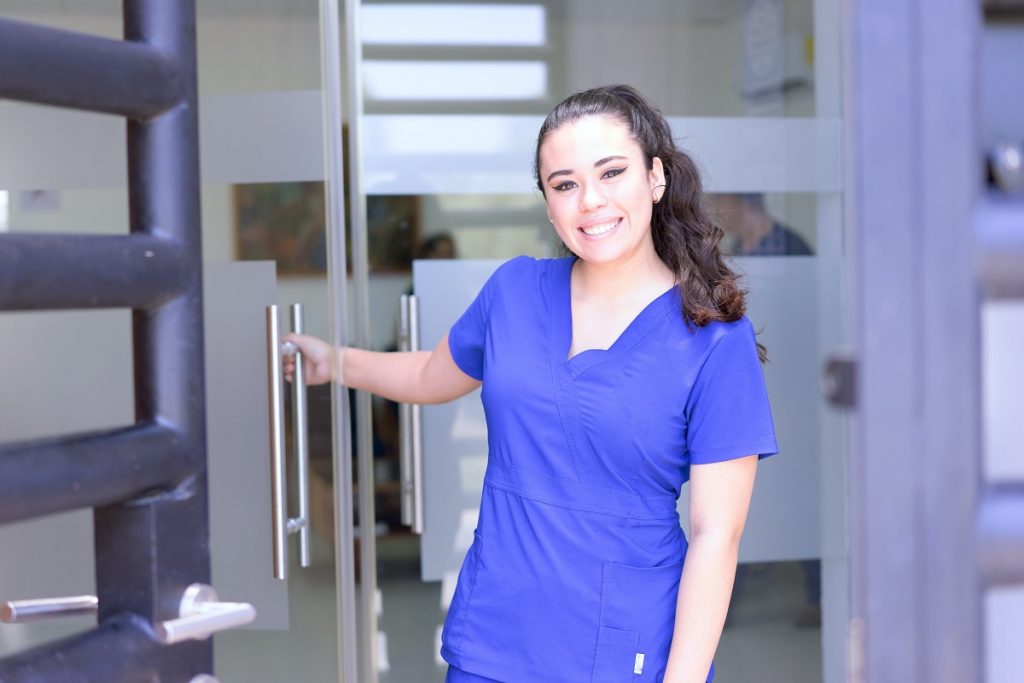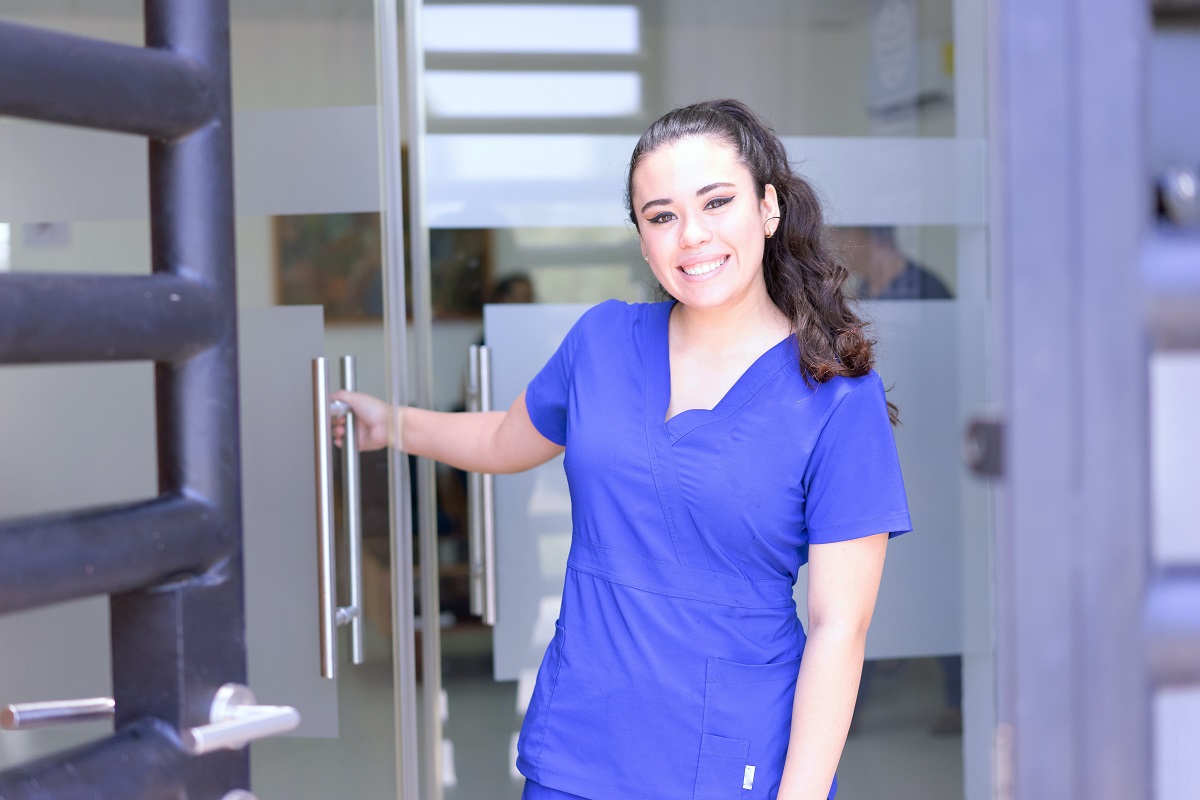
Are you looking into a career in nursing? Qualifying as a Certified Registered Nurse Anesthetist (CRNA) is one of the most profitable and interesting nursing careers in healthcare. CRNAs have the task of administering anesthesia and pain-relief medication to patients during medical procedures.
These Advanced Practice Registered Nurses (APRNs) are some of the highest-earning professionals in nursing and benefit from considerable autonomy in their practice. The demand for qualified CRNAs is higher than ever, and the US Bureau of Labor Statistics (BLS) projects these jobs to grow by up to 12% between 2021 and 2031, that’s 6% higher than other RN specialties.
So, what can you expect to earn for an anesthetic nurse’s salary? Is it worth pursuing this specialty as a career? Let’s unpack everything you need to know about the remuneration for a CRNA.
What Is The Average For An Anesthetist Nurse Salary?
According to the Bureau of Labor Statistics, the average anesthetic nurse salary in 2022 in the US is $195,610 USD per year. This equates to $16,300 per month, and $4,075 per week.
ZipRecruiter states the average anesthetic nurse salary in 2022 in Canada is CAD$169,308 per year. That equates to an hourly wage of around CAD$81.40, CAD$3,255 per week, or CAD$14,109 per month. However, there are instances of CRNAs earning salaries ranging from a high of CAD$323,000 per annum to a low of CAD$97,500.
Most Nurse Anesthetist’s salaries range between CAD$166,500 in the 25th percentile to CAD$197,500 in the 75th percentile. The top earning bracket sees these professionals walk away with salaries of CAD$225,000 in the 90th percentile.
Average pay ranges depend mostly on the practitioner’s location and experience. Based on the quantity of new job listing activity on ZipRecruiter, Nurse Anesthetists may find it challenging to secure a job in the Canadian market due to few positions being offered.
What Is An Anesthetic Nurse?
A CRNA or APRN has specialized training in pain relief and anesthesia. APRNs determine patients’ anesthesia and pain relief requirements during surgery and other medical procedures. They’re responsible for administering anesthesia and prescribing scheduled pain medication.
Nurse anesthetists work in several medical environments, including surgical centers, hospitals, private practices, and clinics. In rural healthcare facilities and clinics, CRNAs and APRNs may only act as anesthesia specialists, while they typically work with anesthesiologists in hospital settings.
What Are The Steps To Becoming An Anesthetic Nurse?
Typically, it takes around seven to ten years of specialized training and education to qualify as a nurse anesthetist. The duration to receive a full qualification, certification, and licensing depends on where you intend to practice.
You’ll need to earn your four-year Bachelor of Science degree in nursing (BSN). After that, you must pass the National Council Licensure Examination for Registered Nurses (NCLEX-RN). You’ll follow up by completing a Doctor of Nursing Practice (DNP) or Doctor of Nursing Anesthesia Practice (DNAP) degree, which occupies you for a further three years.
After completing your doctorate, you’ll have to pass the National Certification Exam (NCE) set by the National Board of Certification and Recertification for Nurse Anesthetists (NBCRNA). Let’s unpack the education process in detail.
Step 1 – Earn Your BSN Degree
It takes candidates up to four years to earn their Bachelor of Science in Nursing degree (BSN). Some anesthetist nurses start their careers by earning their Associate Degree in Nursing (ADN). This qualification is more demanding than a BSN, taking two years to complete. However, the AND is seen as a lower-level certification.
Many educational institutions offer RN-to-BSN courses, with some offering a Master of Science in Nursing (MSN) program, including a bridging option for students with an ADN qualification.
Students with BScs in non-nursing fields may enroll in accelerated BSN programs, earning their BSN in two to three years, depending on the credits they transfer from their previous qualification.
Step 2 – Pass Your NCLEX Exams and Receive RN Licensing
All students studying for their RN qualification must undertake and pass the National Council Licensure Examination for RNs (NCLEX-RN). This exam is computer adaptive and takes approximately six hours to complete.
The test covers nursing practices, conditions and treatments, healthcare systems, teamwork, and patient communication. RNs must also pass a state-issued background check before receiving a qualification in the field.
Step 3 – Gain Experience Nursing in Critical Care Units
All CRNA and APRN programs require the candidate to complete between one to three years of critical care experience in surgeries, intensive care units (ICUs), or emergency and trauma centers.
This training in critical care teaches the RN to deliver medical interventions to patients with critical injuries or illnesses. These scenarios will include life-threatening situations for the patient, teaching the student how to cope with the stress and pressure of these situations.
Step 4 – Enroll In a Nurse Anesthesia Course
In 2022, the minimum educational requirement for aspiring CRNAs and APRNs is a Doctor of Nurse Anesthesia Practice (DNAP) or Doctor of Nursing Practice (DNP) instead of an MSN. Students may select their specialty during their DNP program, whereas the DNAP curriculum is already specialized.
Most CRNA graduate programs require the applicant to have a minimum 3.0GPA, with some educational institutions requiring a minimum 3.5 GPA to enroll at the school. Applicants must also submit an essay motivating why they should be selected to attend the school.
Step 5 – Graduate With a DNP or DNAP And Pass Your National Certification Exam (NCE)
Success with your NCE determines a candidate’s competency for working at an entry-level practice. These candidates must hold a DNAP or DNP degree and an RN license. The NBCRNA charges approximately $995 to take the exam, with the cost increasing to $1,045 as of January 2023.
This computer-adaptive test lasts three hours, consisting of between 100 to 170 questions covering basic science topics like instrumentation, equipment, and medical technology. It also covers principles of anesthesia for surgical procedures and special requirements.
In most states, a CRNA must have an APRN license. Each state licensing board determines the scope of practice for CRNAs and the level of supervision required.
Step 6 – Start Your Career as a CRNA.
The final step in the process is to take a position at a surgical center or hospital. The aspiring APRN will work alongside a surgeon, anesthesiologist, and the anesthesia team. Individuals may also work in military bases, medical offices, and clinics where they lead the anesthesia team.
In these environments with limited resources, such as rural clinics, the APRN may act solo as the primary anesthesia professional on site. CRNAs may have an independent practice and work solo, depending on the state.
Anesthetic Nurse Education Requirements

So, what are the primary educational requirements for earning your qualifications as a CRNA or APRN? Let’s unpack them in detail.
Earning Your BSN Degree
The two-year ADN degree is the minimum qualification required for your RN license. Most nursing programs at the graduate level prefer the candidate to have a BSN degree. Some programs have a bridge component allowing ADNs to complete a program, giving them the equivalent certification of a BSN degree.
Requirements For Admission
Most CRNA and APRN programs require the candidate to have a 3.0 GPA or higher, with 3.5 being the preferred score for elite medical training institutions. The candidate must successfully complete prerequisites in science, math, biology, and chemistry.
Education Curriculum
The BSN program typically includes courses on physiology and anatomy, statistics, effective nursing practice, community health, and medical ethics.
Time to Completion
Most candidates take four years to earn their BSN degree after leaving high school. Candidates with an ADN or bachelor’s degree in other fields of healthcare and science may transfer their credits to fast-track their progress through the BSN program.
Skills Acquired
The BSN program prepares the candidate for administering medications and physical examinations. Applicants must also learn the specifics of monitoring patients and understand and work in healthcare settings as part of a team.
Doctor of Nursing Practice (DNP)
The aspiring CRNA pursues a DNP degree through a nursing school accredited by the American Nurses Credentialing Center (ANCC). Alternatively, they earn a DNAP certification through the Nurse Anesthetists Council of Accreditation (NACA).
CRNAs must also take time to specialize in fields like adult cardiac anesthesiology, chronic pain management, and pediatric anesthesiology.
Requirements for Admission
Most DNAP/DNP education programs require the candidate to have a minimum 3.0 GPA, with 3.5 GPAs being preferable. Given the competitive nature of the industry, a 3.5 GPA is becoming the more common standard for acceptance.
They must also secure an unrestricted RN license and have one to three years of experience working in critical care environments, with professional references.
Education Curriculum
The DNAP and DNP curriculum includes courses in pharmacology, epidemiology, risk management, safety, and advanced evidence-based medical practices. Candidates must also undergo training in healthcare legality and organizational leadership with clinical residencies.
Time To Completion
Those candidates with an MSN will finish their DNP qualification in approximately one to two years, with a BSN student finishing in three to four years.
Skills Acquired
The aspiring nurse anesthetist candidate must learn to apply this research to a new practice, employ the latest technology, utilize sound judgment in clinical settings, and topics related to administering and planning anesthesia and pain relief.
Doctor Of Nursing Practice or Doctor of Nurse Anesthesia Practice?
There are several educational options to assist CRNAs in satisfying the doctoral-level degree requirements. The DNAP and DNP are options.
Doctor of Nursing Practice
- The highest degree in nursing practice. This qualification is essential for teaching in university positions.
- The DNP is only available through medical nursing schools.
- The American Association of Colleges of Nursing (AACN) defines the DNP curriculum and course standards.
- It’s more common for candidates to undergo certification with the DNP program than the DNAP.
- The DNP doctoral degree focuses on practice over research.
Doctor Of Nurse Anesthesia Practice
- A DNAP degree is available from universities and nursing schools.
- The Council on Accreditation of Nurse Anesthesia (CANA) approves all DNAP programs.
- The DNAP is a practice-focused doctoral degree requiring nurse anesthesia practice and management/administration.
Nurse Anesthetist Credentials

All nurse anesthetists must have certification and licensing to practice anesthesia. The state is responsible for administering and regulating licensure, and the NBCRNA manages all credentials of nurse anesthetists.
The NBCRNA exam tests the candidate’s knowledge of anesthesia practices for use in the field. DNP and MSN students will undertake specialized nursing anesthesia courses; these DNAP programs have a specific design around these specialties.
CRNA Certification
Those candidates seeking an NBCRNA certification to qualify as a CRNA must pass their National Certification Exam. They must then earn a degree from accredited CRNA programs, hold an unencumbered RN license, and provide a sworn statement. The statement asserts the candidate doesn’t have any condition that might limit their ability to administer anesthesia.
CRNA Licensure
The CRNA licensing requirements differ between states. However, every state requires the candidate to undergo CRNA certification. Nurse anesthetists apply with the local state board of nursing for licensing.
Some states may require candidates to complete additional applications for physician supervision forms or prescriptive authorities. CRNAs must secure education credits to maintain their licensure in their state.
FAQs On Becoming an Anesthetist Nurse
Q: How Long Will It Take for Me to Qualify as a CRNA?
A: Earning your qualification as a CRNA requires around seven to ten years of intensive study in a university and specialized medical schools. You’ll also need to undertake several years of critical care experience as a Registered Nurse working in theaters, emergency rooms, and other critical care facilities.
As of 2023, candidates looking to qualify as CRNAs can plan on spending two to three years completing a DNP or DNAP degree after securing their BSN qualification and RN license.
Q: Is It Challenging to Become a Nurse Anesthetist?
A: Yes. Studying to become a nurse anesthetist is highly demanding on your time. Most graduate-level programs require the candidate to have a minimum 3.0 GPA, with most preferring a 3.5 GPA for admission into DNAP and DNP programs.
The candidate will have to undergo intensive study in the fields of anatomy and physiology, pharmacology, and nursing practices. Some programs may only admit 10% of applicants, and others may only accept 20%.
Q: Do Nurse Anesthetists Receive a Good Salary?
A: Yes. As a nurse anesthetist, you can expect to walk into a job earning close to six figures, depending on your location and final qualifications. The lowest average salary for a CRNA is CAD$97,500, while the top 90th percentile of earners takes home approximately CAD$225,000 per annum.









